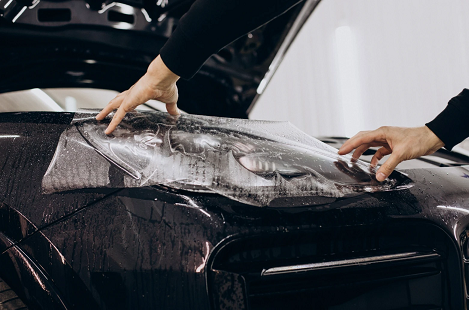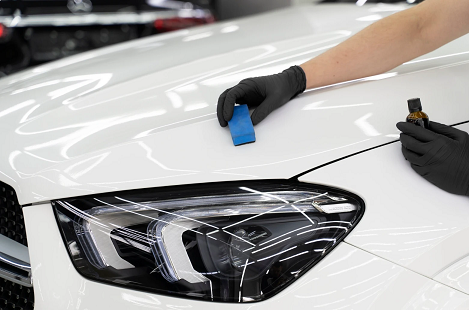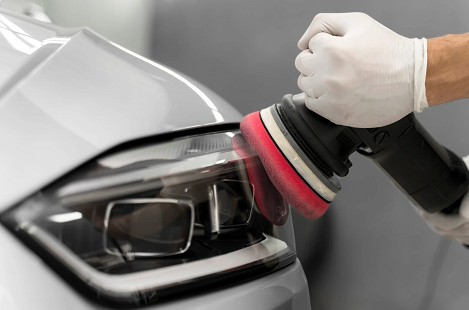SwissBullion.eu Expands Cryptocurrency Payment Options with Ethereum and Ripple
October 10, 2025Top Skin care Treatments Near Valley Village & Studio City
October 10, 2025
Dubai’s car culture is synonymous with personalization and an appreciation for striking automotive aesthetics. In this dynamic environment, vehicle wrapping car service Desert Diamond https://car-care.center/services/detailing/car-wrapping/ has become a leading choice for drivers looking to transform their cars from ordinary to truly unique. More than a temporary fashion trend, modern vinyl films enable drivers to protect the factory finish from harsh desert heat, sand abrasion and UV rays while expressing individual style. Compared to traditional repainting, wraps offer swift installation, flexible designs and the option to revert to the original color. This article compares wrapping with repainting, explores the installation process and cost factors, and discusses how wraps protect vehicles while complying with Dubai’s regulations.
The value of wrapping versus painting
Repainting is a permanent process that involves stripping the old finish, applying primer and multiple coats, and curing the paint; it can leave the car off the road for a week or more. Vinyl wrapping applies a thin film directly to the paint and is reversible. The film is heated and pressed into place and can be removed later, allowing owners to experiment with colors and graphics without harming the underlying finish.
- Cost and time: Standard repainting costs AED 2 000–5 000 and high‑end paint jobs exceed AED 10 000. Full wraps range from AED 5 000–15 000 and specialty finishes up to AED 35 000. Painting often requires a week or more of downtime, whereas wrapping is completed in two to five days.
- Durability and design: Quality paint can last a decade with regular polishing, but vinyl wraps last five to seven years, and premium films up to ten. Wraps come in a nearly limitless array of colors and textures, including matte, gloss and color‑changing films.
- Resale and legal: Painting permanently alters the factory finish, which may reduce originality. Wraps protect the original paint and can be removed to reveal it, preserving resale value. When changing vehicle color or advertising, owners must obtain approval from the Roads and Transport Authority to meet legal requirements.
These contrasts show whether a wrap or repaint aligns with personal taste, budget and long‑term goals.
| Aspect | Vinyl wrapping | Traditional painting |
| Cost range | AED 5 000–15 000 for full wraps; specialty finishes up to AED 35 000 | AED 2 000–5 000 for standard paint; custom jobs may exceed AED 10 000 |
| Installation time | 2–5 days including preparation and curing | 7 days or longer |
| Lifespan | 5–7 years; premium wraps about 10 years | 10+ years with maintenance |
| Design options | Wide range of colors, textures and graphics; removable partial wraps | Limited palette; changes require repainting |
| Resale effect | Protects original paint; removable for resale | Permanent change; may reduce originality |
Inside the wrapping process and cost drivers
Wrapping a vehicle starts with a consultation to select colors, textures and graphics. Technicians then wash and clay‑bar the surface to remove contaminants, sometimes dismantling badges, mirrors or handles to obtain seamless edges. After measuring and plotting the vinyl, installers apply the film to each panel, using heat guns and squeegees to conform it to curves and recesses. Edges are tucked into seams, and the wrap is left to cure for several hours before the car is reassembled.
- Vehicle size and complexity: Larger vehicles or those with intricate body lines require more material and labor, increasing the price.
- Film quality: Standard color‑change vinyl lasts three to five years. Premium films with UV blockers last seven to ten and often cost more.
- Design and printing: Custom graphics and branding can significantly add around 40 % to the base price because of design work and printing.
- Installer certification: Certified workshops charge about 25 % more but provide better edge treatments, superior installation techniques from experienced teams and longer warranties.
- Maintenance and removal: Gentle hand‑washing preserves the wrap. Removing an old wrap costs AED 300–800 and keeps the paint intact.
These factors explain why wrap quotes can vary widely. Compact sedans with simple body panels and a standard color change film may cost around AED 3 500, whereas large SUVs or luxury cars with complex curves, premium films and bespoke graphics can exceed AED 12 000. Consumers should always request detailed quotations, verify the film’s UV blocking rate, and confirm that edges will be wrapped properly to prevent peeling. Investing in a skilled installer helps avoid bubbles, seams and premature failure. Understanding the process and cost drivers empowers buyers to choose options that fit their budget and ensures the wrap lasts as long as possible. Consultations with experienced shops can also reveal whether paint imperfections need correcting before wrapping, which affects labor time and final pricing.

Beyond aesthetics: protection, sustainability and legal compliance
Although a wrap’s vibrant finish is eye‑catching, its most important function in Dubai’s harsh climate is protection. The desert sun, dust and sand can quickly oxidize paint, causing fading and chips. A vinyl wrap acts as a sacrificial barrier that blocks ultraviolet rays and shields the paint from minor abrasions and road debris. If a section becomes damaged, it can be replaced individually, avoiding the expense of re-wrapping the entire vehicle. By preserving the factory paint, wraps help maintain resale value and give drivers peace of mind when navigating congested roads or parking in tight spaces. The wrap also shields the car’s clear coat from bird droppings, tree sap and acidic rain, reducing the need for frequent polishing or touch‑ups.
Beyond protection, wraps offer environmental benefits. Painting involves sanding, solvents and overspray, creating hazardous waste. Vinyl installation generates less waste and uses adhesives that have improved significantly. Premium films incorporate UV inhibitors and ceramic coatings to resist yellowing and cracking. A 2025 report predicted the UAE wrap film market will grow about 24 % annually, reaching USD 597 million by 2030, reflecting rising demand and technological advances that extend wrap lifespans. Improved adhesives allow wraps to be removed cleanly and preserve underlying paint.
Compliance with local regulations is vital. The Roads and Transport Authority requires approval for any color change or advertising wrap; applicants submit a design plan, registration, insurance and trade license. Approval takes roughly five to ten days. Reflective silver, bright yellow and military camouflage are banned, and advertising must be bilingual. Wraps cannot cover license plates, lights or safety stickers. Penalties for non‑compliance range from AED 500 to 3 000 and may include vehicle impoundment. Despite these rules, a vibrant community of enthusiasts and businesses holds public car meets and shares designs online, fueling creativity and reinforcing Dubai’s reputation for automotive innovation.
Driving Toward a Unique Identity
Vinyl wrapping has become a mainstream way for Dubai motorists to reinvent their vehicles without the permanence of a repaint. Compared with painting, wraps deliver quicker turnaround, far more color and texture options and the ability to remove the film and reveal the pristine factory finish. Although premium wraps can cost more upfront, their protective benefits, design flexibility and preservation of resale value offset the higher price. Harsh desert conditions make protection essential; a wrap acts as a shield against ultraviolet rays and sand while reducing the need for frequent polishing. Advances in adhesives and coatings have extended wrap lifespans, and the growing market ensures even more choices. Compliance with RTA rules is straightforward when owners submit designs and respect color restrictions. For personal vehicles, wraps offer self‑expression; for businesses, they transform fleets into mobile advertisements. Ultimately, wrapping combines artistry, practicality and reversibility, making it an appealing investment for those who want to stand out on Dubai’s roads and protect their automotive assets. Choose wisely, and enjoy the journey ahead.

